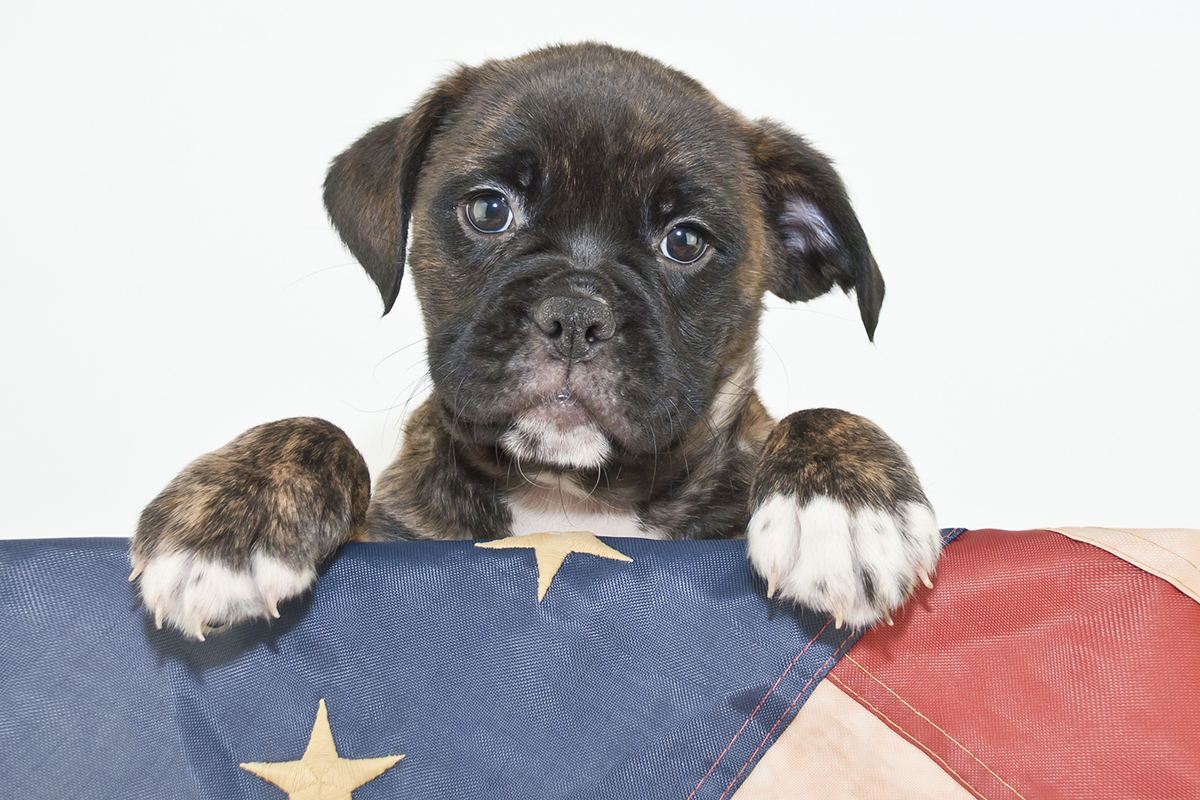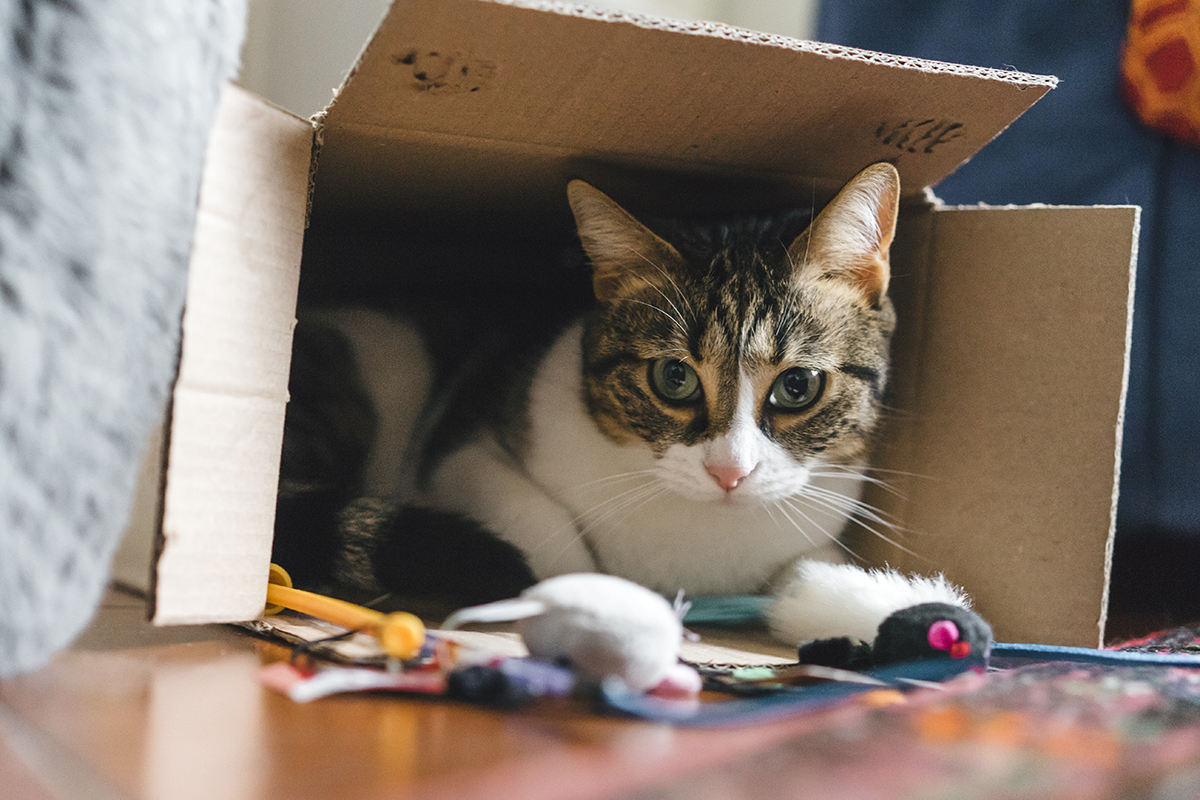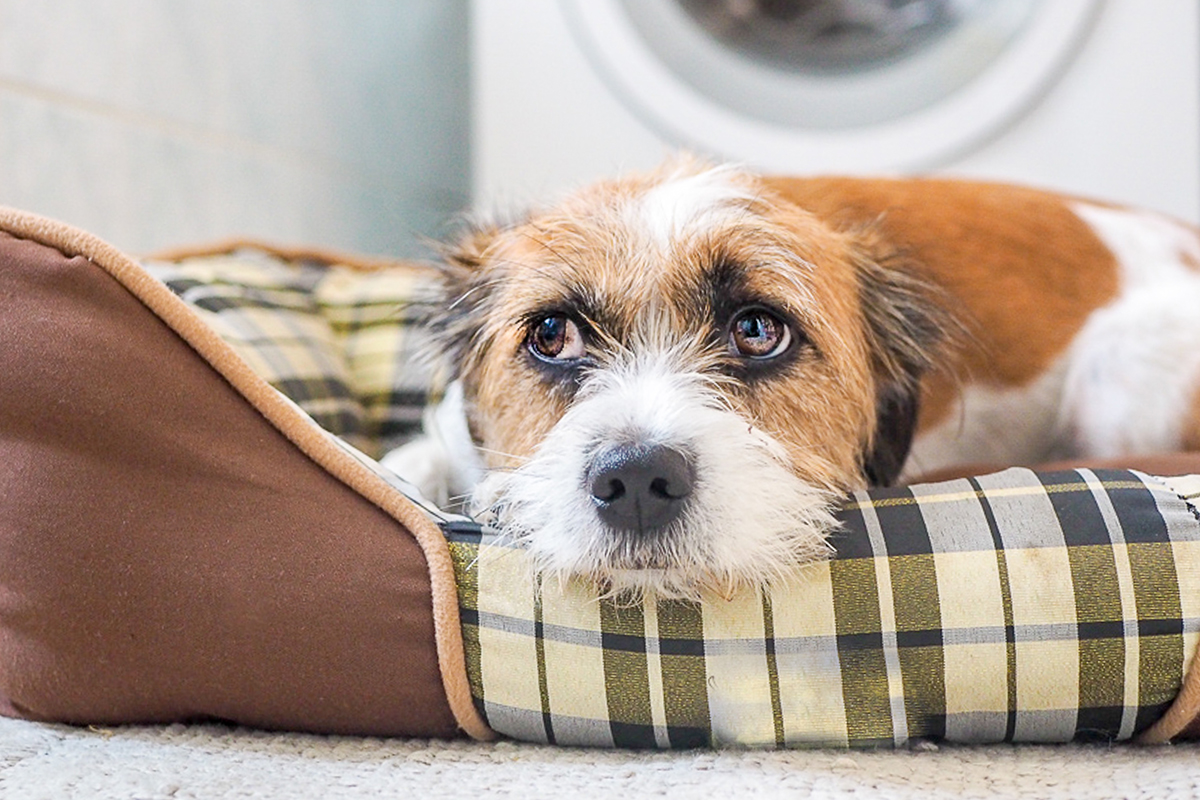For some reason, this year’s neighborhood fireworks displays, involving unpredictable loud booms, crackles, whistles, and flashing lights, seem to have begun even earlier than the Fourth of July. While some people are enjoying the spectacles, their pets can be in panic mode. It’s widely known that more pets run away on the Fourth of July than any other day of the year. So how do you help your pets during an entire summer season of fireworks displays?

Remember that fireworks sound even louder to your pets as they have more acute hearing than people. Also, pets don’t understand why these unpredictable sounds and lights are happening and, because of this, they regard them as threatening. With the hustle and bustle of guests going in and out of the house, pets can dart out the front or side door, especially when fearful of the sounds—even if you thought you put them safely away in another room.
Make sure your pet is microchipped AND has a collar with an ID Tag with your contact information. The collar should be secure so your pet can’t squeeze out of it. You should be able to fit two fingers underneath the collar so it’s not too tight, but not so loose that comes off over the head.

Create a safe space for your pet. Find a small room in your house where you can makes sure windows are closed, block out the lights from outside with shades or curtains, and place favorite items inside such as beds and favorite toys. You could include puzzle games or toys for your pet that dispense food rewards. If a dog is crate trained and regards that as his/her safe place, put him in the crate. You might consider also covering the crate with a heavy sheet or light blanket. Play soothing music or white noise to block out the loud fireworks.
Help your pet stay calm. There are many ways to naturally try to soothe your dog or cat. For both, there are calming sprays, diffusers, edible chews, and even calming wraps that work by applying gentle pressure on the body. This pressure produces pheromones or other hormones that have a calming effect.
Dogs, considering the fact that they may be indoors and outdoors, should be kept on a leash during celebrations with fireworks. They should never be taken to a fireworks display. Don’t set off fireworks near them because an accident can result in burns and/or trauma to the face and paws. It’s a good idea to take your dog on a long walk so he/she can go to the bathroom and then have an extra vigorous play session just before fireworks are to begin. Then the dog may settle down more easily in the safe space.

Remember, the next day when you go to take your dog outside, that there may be leftover items from the fireworks or just from your barbecue that can be very harmful. Lighter fluids, citronella candles, and insect repellants can irritate a pet’s skin and, if swallowed, cause gastrointestinal distress and central nervous system depression. If inhaled, the lighter fluid can cause aspiration pneumonia and breathing problems.
If you notice that your pet stays upset for days afterwards and the noise phobic behaviors seem severe, consult your veterinarian. The doctor may recommend medication for your pet as a last resort.
Make sure to keep a close eye on your feline friends, particularly males, to see if they are going to the bathroom outside of the litterbox, if there is blood in their urine, or if they are straining or not urinating at all (this is potentially deadly). Urinary tract disorders in cats are often stress induced according to the College of Veterinary Medicine of Illinois at Urbana-Champaign. So these disorders can be triggered by fear of loud noises such as fireworks and thunderstorms.
The bladder of a cat can become inflamed in response to stress so that crystals form and the narrow urethra, particularly in males, can become blocked. If your cat stops eating, throws up and you know he or she is not urinating at all, it is an emergency and your cat must be taken to a veterinarian immediately.
If you’re hitting the road with your pets this summer, stay vigilant during family vacations too—fireworks displays are common and the chance of thunderstorms increases as well. The number of lost pets rises greatly during vacations. You can bring along some of the items mentioned and create a calm and secure space on the road for each of your pets. Have a fun and safe summer!


